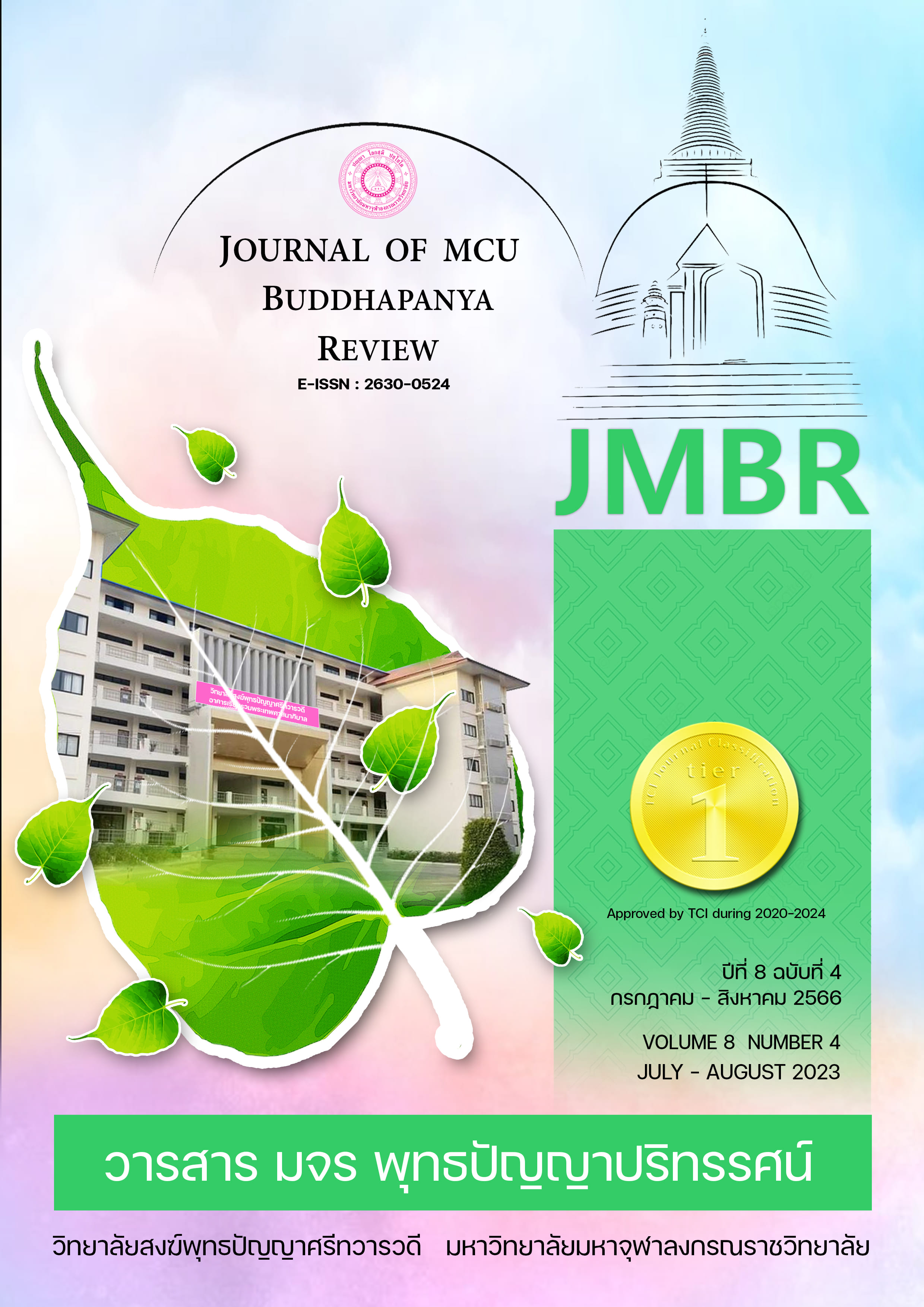THE ROLES OF BUDDHIST MONKS IN PROMOTING SOCIAL WELFARE AND SOCIAL WORK IN CHANGING TOWARDS THE ERA OF DIGITAL SOCIETY
คำสำคัญ:
Role of Buddhist Monks;, Social Welfare and Social Work;, Digital Society.บทคัดย่อ
The research article aims 1) to study the connection between Buddhist philosophy and concepts and theories of social welfare and social work; 2) to explore the problems, obstacles, and limitations of monks in promoting social welfare and social work; and 3) to propose guidelines for the development of monks' roles in promoting social welfare and social work as Thailand transitions into the digital society era. This study employs a mixed methods approach. The findings indicated that several influencing factors reached statistical significance at the 0.05 level on integrating Buddhist philosophy into the promotion of social welfare and social work including frequency of engagement in Buddhist activities, educational backgrounds (university affiliations), parents' occupations, and monthly household income were significant. The factors influencing opinions on the obstacles and limitations monks encounter in promoting social welfare and social work also reached statistical significance at the 0.05 level on the application of key Buddhist philosophies “Four Saṅgahavatthus” in promoting social welfare and social work. This aligns with the core principle of social work “helping people to help themselves.” The study identified attitudes as central obstacles that monks face in their efforts towards social welfare and social work. The study proposes the following guidelines: 1) The Department of Religious Affairs under the Ministry of Culture should take a leading role in promoting and facilitating the integration of technology within the domain of monks' work related to social welfare. 2) Regional, provincial, and district Ecclesiastical offices should establish dedicated departments focused on social welfare and social work with a proactive approach and designate primary and secondary personnel responsible for these initiatives. 3) The Office of the Ecclesiastical Provincial Governor should collaborate with the Council of Social Professions to implement Buddhist philosophical principles in advancing social welfare and social work, in the demands of the digital society.
เอกสารอ้างอิง
Kanokwan Jaitiangtrong. (2013). “The role of monks and community development: a case study of Phrakru Palad Somporn Thanthommo”. Master of Arts Thesis in Human and Social Development, Prince of Songkla University.
Thanin Siljaru. (2012). Research and Analysis of Statistical Data with SPSS. 11th edition. Bangkok: Business R&D.
Prasert Pontin. (2009). Buddhism and Social Welfare (Teaching Document). Chiang Mai: Mahachulalongkornrajavidyalaya University, Chiang Mai Campus
Phra Khru Baidika Surapol Asapo (Yamchum). (2015). Model development of Public Welfare Works according to the Buddhist Paradigm. Bangkok: Mahachulalongkornrajavidyalaya University.
Phra Maha Seri Putthrakkhito. (2009). Buddhist Social Work. [Online]. Source: https://shorturl.asia/tnOXQ (15 February 2023).
Phra Maha Santi Thanvaro (Prasobsuk). (2018). “The Application of Buddhist Principles in Public Welfare Work of the Sangha in Thung Khru District, Bangkok”. Master’s Degree Thesis, Buddhist Studies. Mahachulalongkornrajavidyalaya University.
Phra Brahmagunabhorn (P.A. Payutto). Buddhadhamma, Expanded Edition. 11th edition. Bangkok: Sahadhammika Co., LTD., 2016.
Phra Samu Charan Carudhammo (Charucharoenwong). (2012). “The Religious Role of Public Welfare of the Ecclesiastical Officers in Nakhon Pathom Province.” Master's Degree Thesis, Buddhist Management. Mahachulalongkornrajavidyalaya University.
Wichit Rawiwong (1984). “Buddhism and Social Welfare”. Journal of Kasetsart (Society) 5 (2), 149-155.
ดาวน์โหลด
เผยแพร่แล้ว
รูปแบบการอ้างอิง
ฉบับ
ประเภทบทความ
สัญญาอนุญาต
ลิขสิทธิ์ (c) 2023 วารสาร มจร พุทธปัญญาปริทรรศน์

อนุญาตภายใต้เงื่อนไข Creative Commons Attribution-NonCommercial-NoDerivatives 4.0 International License.



